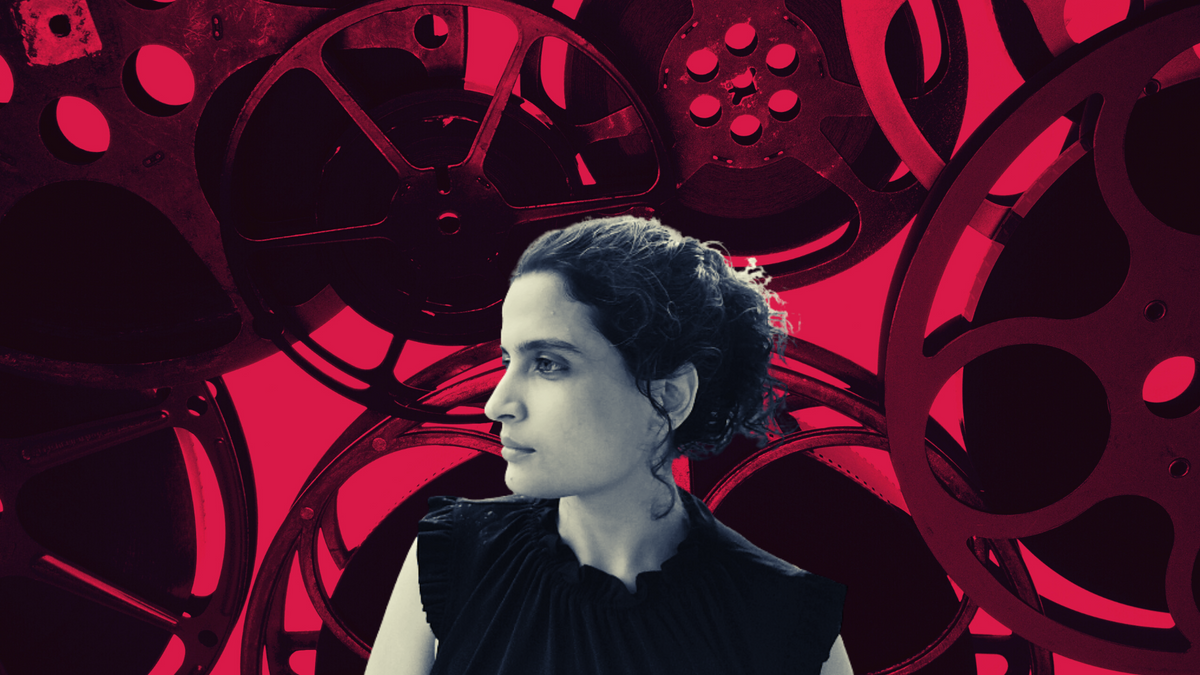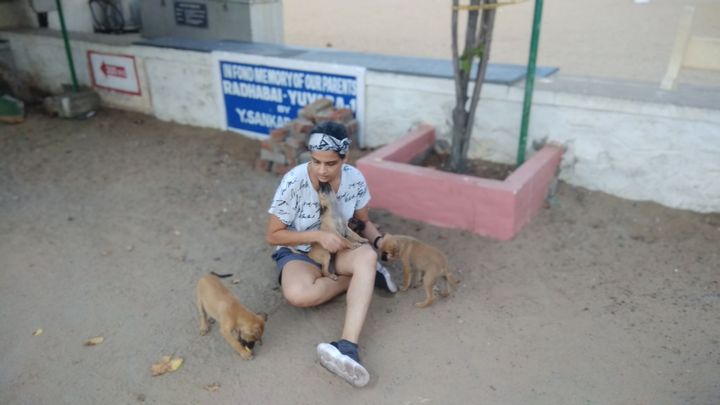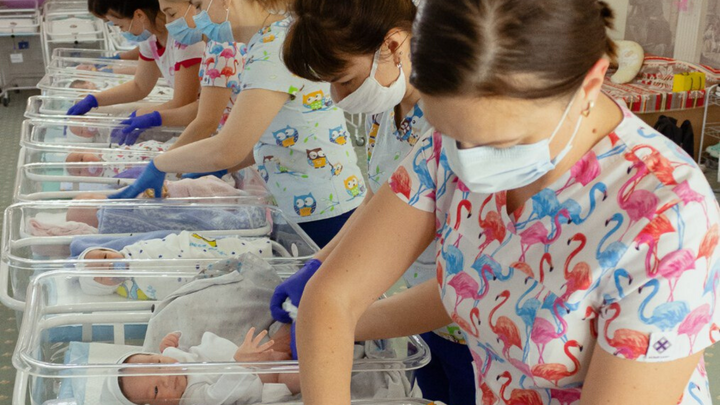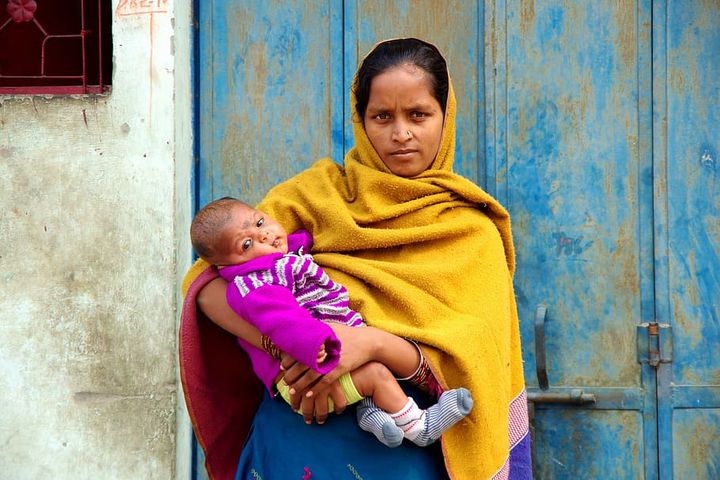Vaishnavi Sundar on The Latest Developments in India
How's Indian government tackling the pandemic? Including a special report on the Indian trans situation.

Vaishnavi Sundar is an independent filmmaker, feminist, writer, and women's rights activist from Chennai, Tamil Nadu, India. Her latest documentary, "Dysphoric" is a four-part series on the rise of Gender Identity Ideology, its effects on women and girls - especially in developing countries.
Dana: India has been in the news since the start of the pandemic as one of the worst affected countries. The Indian Delta mutation is now considered one of the most dangerous. Where did the Indian government go wrong?
Vaishnavi: India is a massive country. Like the US, there is a federal and state level. The federal level is also called the Centre, and it unites 28 states and eight union territories. Because the central government is fascist, religiously extremist, and racist, there was a lot of favouritism in the manner in which resources were distributed. Even in the minds of ordinary citizens, there are archaic prejudices that affect the way we look at one another. People belonging to the northern states often look down upon those in the south, much like the Aryan supremacy we have all heard about elsewhere in history. I live in the south of India and we’re considered to be the Dravidian dark-skinned, inferior people. So this prejudice extends all the way up to the government where it focused more on states belonging to “their people” while keeping in mind the vote bank politics.
How did your state tackle that?
Fortunately, in my state, Tamil Nadu, our newly elected Chief minister is really gearing up. We had a lot of problems, a lot of deaths, negligence and bad decisions in the early stages of the pandemic, but now the state government is working diligently keeping people’s welfare at the core of it. People are so not used to good governance that everyone is wondering “why is the state caring for the people instead of neglecting us?” (laughter). We still have a lot of deaths, displacements and uncertainties, but the government is ramping up their efforts. And this is too good to be true.
What about other states?
The overall situation is mostly pitiable, there are open graveyards with secret footage of men just dumping dead bodies in the river, children are being orphaned and having nowhere to go. Our child welfare schemes are below average and there is a growing fear that these orphaned children will somehow fall in the hands of traffickers.
Given that the monthly income of a majority of Indians is negligible, we can’t afford to follow social distancing inside a house. Additionally, 230 million Indians fell below the poverty line due to the pandemic. How will you isolate yourself when you’re a big family with eight people who all live in the same room? I also have to laugh at the advice that people should use separate bathrooms: there’s often no bathroom in Indian houses. Pandemic is especially hard for women, with or without a toilet.
How so?
Many such women, usually in the rural areas, have to get up extremely early in the morning, like 3:00, 4:00 a.m to “go to the bathroom,” meaning they have to empty their bowels in open air when it’s still very dark, before the men start to come. They also have to walk very far away to do that. There have even been cases where women died after they were bitten by snakes while “going to the bathroom” in this way. Not to mention how they become a target for sexual violence when they use the outdoors as their toilet. This is why a group of women walk together, and hurry back before the sun is up.
Our prime minister launched a few toilet-building initiatives, but they were mostly useless. By the time the money from the schemes trickled down, it often got lost. Also, when some toilets were actually constructed, they were built so horribly, with poor amenities! What’s worse, they immediately became hot spots of sexual harassment, so women became afraid of using them.
We don’t usually hear of these cases, do we?
No, none of these cases get attention, even the western media amplify the prime minister’s “efforts to build so many toilets that no house would be without one.” The reality is completely different. There has never been a possibility to hold the prime minister accountable for his poor governance because ever since he was elected, he has not appeared in a single press conference; and his second term is now on. Additionally, the central government is extremely superstitious. On Twitter, they issue advice such as: “drink cow urine, inhale steam,” etc.
Cow urine?!
Yeah, cow urine is considered very holy in India, because the cow is considered to be a deity of sorts.. Some people have now turned this belief into a business model: now you get a bottle of urine in retail, available online and in stores. And, you will not believe this: there are Indians abroad who are buying this urine bottle and having it shipped to them.
Does cow urine treat Covid-19 as well?
That’s what some of the ministers in our central government are claiming, yes. But then again, according to them, cow urine supposedly treats everything, every disease. Also, instead of procuring oxygen machines, the Centre installs steam inhalation machines in public places, and people are encouraged to inhale the steam, sitting beside each other.
Is that steam from cow urine?
No, it’s just water - like you would use at home when you have a cold. People are supposed to stand in front of these machines outside and inhale the steam. Some early research shows that it could be one of the contributing factors as to why people are getting the black fungus infection, and now we even have cases of the yellow fungus. Instead of treating the crisis in a scientific manner, the federal government chooses to peddle all kinds of superstitions.
How’s vaccination going?
During the first wave, India sent out millions of vaccines to other developing countries because our prime minister wanted to appear as a savior to the Western media. Now we have a shortage and we’re begging the rest of the world to send us vaccines. Also, India is in the top ten of Covid-19 affected countries and it is one of the few that actually charges people for getting vaccinated.
Wow! How much?
There are two vaccinations available in India. One is Rs. 850 ($12) and the other company sells it for Rs.1250 ($18). We are advised to take two shots of each, so the total incurred expense is in fact double. There are some places where vaccinations are administered for free, but by the time you get your slot, you would have been infected by Covid-19 waiting in the queue.
Also, to make matters worse, the only way to register for vaccination is online. How are people in the rural areas supposed to do that? And, the registration website/ the navigation is in English and crashes frequently.
We had a similar problem in Slovakia: the registrations were online and the website kept crashing because it wasn’t designed for a lot of traffic. Later, it got better.
It’s the same here. Gradually, the website began working better. However, now we have a shortage of vaccines. While all these ongoing issues are overwhelming us, as a consequence, the pandemic saw a spike in rape/ sexual violence cases too.
How come?
The lockdown has made vulnerable women even more at risk. For example, a few days ago, a young woman and her mother went to a hospital to be tested for Covid-19. Because they were tested negative, the hospital refused to take them back home in an ambulance, so these two women had to walk 25 kilometers back home, through dangerous areas. The mother was abducted and gang raped.
Another example: there are people in India who make less than one dollar a month. The government launched a food-distribution program, with vehicles that are supposed to drive food rations to these low-income people. However, in one case, the workers in such a vehicle lured a woman into their van with the promise of food, locked her there and gang-raped her. I can give you endless examples of male sexual violence against women in India, these are barely scratching the surface.
Horrible! What can we, as feminists who live outside of India do to help Indian women?
Honestly, I don’t know. I’m in India and I feel like I can’t do much myself. The pandemic is a very unique situation. You can’t even go and comfort a friend when someone in their family dies. I keep hearing about the deaths of people I know, I know of women whose husbands died, their children died… I think that, if you can’t even grieve together with them, no amount of money will be of much help. Everyone’s willing to donate money. But the pandemic is so sinister that, even if you offer money, there is no oxygen to buy, so, what are you going to do? Of course, some organisations are tirelessly working to mobilize funds and help people find oxygen etc., but I feel like money will only partly solve the issue.
If one still wanted to donate to an Indian organization, how would you advise her to go about it?
Make sure it’s legit. If you wish to help the poorest of the poor, you can’t do so through a bank transfer, as the poorest people don’t have bank accounts. And, right now, it is not even possible to distribute food and other resources, because of the pandemic. It’s a tricky situation. But what everyone can do is continue talking about it and remind others that in many areas the pandemic is far from over. You know, at least in India, as we’re a big country, we got some news coverage. Nepal is in a terrible situation as well, but not a lot of media companies write about that. The West has this idea about the global South and it’s often not true - it would do well to ask regular people in the developing countries about their life situations, especially the ones living in the most materially deprived regions. That’s what I’d like to do as soon as the lockdown is over.
Tell me more!
I’m planning to report on the effects of the pandemic, the ravages and the aftermath. I also hope to broadcast what’s going on in the regions where people don’t have internet connections. Right now, I have no way to find out. I hope to record the experiences of various groups - young people, really old people, women, of course, and farmers, as their situation is pitiable right now. The farmers' protest is ongoing with no end in sight, many men and women are still out on the road challenging the Farm Bills 2020.
What are your plans in terms of tackling the gender identity issues in India?
Right after the lockdown ends, I’m hoping to secure appointments with politicians in my constituency to explain to them why there is a problem with the conflation of the words “sex” and “gender.” You know, our constitution as well as many other legal documents are written in English and, right now, these two terms are used interchangeably. In my native language, Tamil, there is no separate word for “gender.” When trans activists interpret these laws and translate them into Tamil, they will do so in their favor, because this ambiguity works in their benefit. This is actually already happening; men are trying to use these laws: a man was allowed to contest in a constituency set aside exclusively for females, with a claim that he has always “felt like a woman,” and men have used gender identity in court to argue sexual harassment cases.
Do you have an example?
An Indian man accused of sexual harassment claimed he had a female gender identity, so he couldn’t have harassed a woman. He pretended to the judge that, because he was actually a woman, the attention he gave the complainant was “sisterly love.” So, think about that! The option of playing that card is already on their minds.
Did the judge accept such a defense?
No, he didn’t.
That’s a relief.
Yeah, but that can change in the future. Especially since the Transgender Act was passed, which is basically like Self-ID. The government also made “gender affirmative surgery” free of charge, i.e. paid for by taxpayers' money.
What sort of surgeries are in the “free” package?
It’s not specified, which means there could be everything: breast implants, mastectomies, phalloplasties, vaginoplasties. There even exist surgeries for men who have protruding ears to make them stop sticking out as well as jawline surgeries, to make their faces look less masculine. They have to pay for these out of their own pockets, for now. However, I think trans activists will try to make them free as well by calling it “feminization” surgeries.
Getting back to Indian women; you said there’s not much Western feminists can do for them now. However, what do you suggest they refrain from doing?
They shouldn’t assume Indian women are one unit. India has strict hierarchies of caste and religion. In other words, if you think Indian women are like me, you are so wrong! I am extremely privileged. I was born in an upper-caste family and could also be considered upper class, because I am educated, opinionated and have access to resources. Even today, there are women in India who are designated to perform just this one job: they have to physically pick shit. They have to clean shit from toilets, roads, railway tracks. We still have trains that release excrement between the rails, and who cleans it? These women, merely because of the chance of their birth into a particular caste termed "Dalits."
So, what you’re saying is that we should educate ourselves..
When you say it like that, it immediately sounds like the trans activists (laughter), but, yes.
I know, just as I said it, I realized what I sound like (laughter).
But, you know, this is so interesting, because even in India, very few people know about issues like caste. Indian upper class people are often totally blind to oppression in our country, but they will know everything about George Floyd and racism in the US. They will tweet “Black Lives Matter,” and stuff like that.
The same seems to be the case in my country. Slovak feminists will talk about racism or “freeing Palestinians,” while they ignore issues women are facing in their own country.
I think it’s because it’s easier to talk about oppression that’s happening far away. If you focus on oppression in your own country, you’re obligated to question yourself, your position in this rigid social hierarchy. Unfortunately, this is also happening within the budding radical feminist groups in India, where most discussions revolve around the US and UK.
Frustrating!
I often get a response that “everything is interconnected!” That’s true, but there’s a point where we must start looking inward. I wish we had the kind of camaraderie that the UK or South Korean women have. But I understand how it is challenging given our country’s size and the numerous languages we speak. I hope someday we can galvanize a larger group and have Indian women from various walks of life working towards a common goal. I think in this case, we will have to go step by step because “sex-based rights of women” is a far cry from achieving if we don’t alleviate millions of women from the shackles of caste and an array of other systemic problems. I don’t suppose I can see any significant change in my lifetime, and I believe millions of women are working tirelessly to topple patriarchy in their own way, within their communities. When I see that, much of what I do seems like a tiny speck in the universe.
But like most women who spent their whole life fighting for rights they may never enjoy, I hope whatever little I do can contribute to the common cause, even in a very distant future.
The generous support of our readers allows 4W to pay our all-female staff and over 50 writers across the globe for original articles and reporting you can’t find anywhere else. Like our work? Become a monthly donor!
Enter your email below to sign in or become a 4W member and join the conversation.
(Already did this? Try refreshing the page!)





Comments